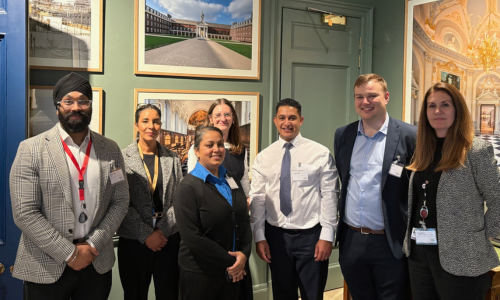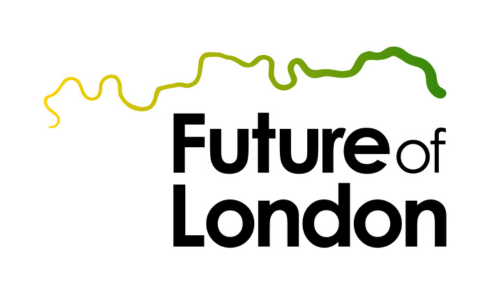Embedding ethnic diversity in procurement: a strategic opportunity
Public sector procurement is often seen as a technical necessity: complex, rule-bound and resistant to change. Yet, as highlighted our recent workshop in partnership with the not-for-profit framework provider LHC, strategic procurement can be a vital lever to help councils drive inclusive growth and better and more equitable representation.
The imbalance between who lives in the city and who shapes it has real consequences for inclusion, representation and trust. In London, about 40% of residents are non-white, but only about 11% of architects are. This gap can lead to environments that are less inclusive and reinforce inequities.
The recent Procurement Act requires councils to evaluate tenders using broader considerations that include social, economic and environmental benefits. But how can boroughs embed ethnic diversity goals from inception through to delivery to make procurement truly inclusive and representative?
Building on our previous workshop, we gathered together London borough officers and directors in procurement and built environment services to explore how procurement can be transformed from a barrier into a strategic enabler for equity and representation.
Barriers that limit participation
The workshop participants were candid about the systemic barriers to inclusive procurement. Existing, centralised procurement processes often favour large, well-established firms, leaving smaller, ethnically diverse suppliers struggling to compete.
Even when ethnically diverse suppliers are involved, their roles can sometimes be limited to community engagement and consultation rather than core design or delivery. This tokenistic approach was called out by several contributors, who emphasised the need for genuine inclusion in design and decision-making: “It’s essential to bring in these firms to do the design work, not just the consultation, because that’s where the fees are,” said one participant.
While many boroughs have diversity and social value goals, these are not always backed by firm requirements, monitoring or clear communication. Suppliers may agree to achieving commitments to improve ethnic diversity in their workforce and supply chain, but without clear accountability, delivery can fall short.
A lack of imaginative thinking, strategic vision and understanding of wider project impacts can also result in missed opportunities to embed social value and diversity meaningfully. Furthermore, the level of expertise and track record required for large-scale capital projects can exclude smaller, diverse-led organisations, even when they have the creativity and insight needed to deliver impactful work.
Practical innovations to drive better inclusion
Despite these challenges, boroughs are finding innovative ways to ensure their suppliers represent the diversity of their residents. Faye Elliott, Social Value Coordinator at Barking and Dagenham Council, explained the council’s strategic approach to social value, in a borough where the population is 69% non-white.
The council’s procurement board engages early with commissioners and suppliers, ensuring that a commitment to diversity and community impact are built into the process from the start. “Being part of that conversation early on allows me to use social value to make the impact that we need at that moment in time. So I understand who's procuring what and when, and how I can link that to what the borough needs overall”, she explained.
She highlighted that the borough seeks to consolidate social value, drawing together different activities around a place, group or organisation to increase impact across different services. A dedicated toolkit helps suppliers understand expectations, and “meet-the-buyer sessions” help to provide transparency and support collaboration.
Supplier readiness programmes in other parts of London are also proving effective. These initiatives help small businesses and diverse-led firms build the skills and confidence needed to bid for public contracts. Supply Wandsworth, for example, is a strategic localised procurement programme offering training, expertise, networking events and a supplier directory to support local businesses.
Maximising council powers to drive social value and inclusion
Councils are also exploring how they can more proactively use statutory and procurement powers to set clear expectations around social value and equality, diversity and Inclusion (EDI) requirements. Some are encouraging partnerships between large and small organisations to share risk, deliver projects collaboratively and support better representation. Southwark Council has gone further by requiring preferred suppliers to bring in smaller firms as part of delivery teams.
Subcontracting remains a useful tool, but only when it empowers smaller organisations rather than diluting their expertise and creativity. Boroughs are increasingly requiring consortia that include both large and small, diverse-led practices, ensuring meaningful involvement throughout the project lifecycle.
Strategic opportunities for boroughs
Our workshop participants considered what boroughs can do collectively. While political differences and local autonomy pose challenges, there was interest in developing shared frameworks or minimum thresholds for social value.
Another opportunity lies in empowering communities to monitor delivery. When residents are involved in shaping and evaluating projects, they can hold suppliers accountable and ensure that promises translate into real impact. “If you get it right”, one participant observed, “the community monitors the social value impact, and the council can step away.”
The group agreed that visibility matters. Boroughs were encouraged to use their communications channels to highlight the contributions of ethnically diverse-led firms. One participant shared a story of having to call a comms team to ensure that a smaller engagement firm was credited alongside the lead architect in a press release. These simple acts of recognition can help build the profile of diverse suppliers.
Engaging young people is key
A key finding from our previous workshop was that building a more diverse and representative industry can be achieved only by introducing young people, especially those from ethnically diverse backgrounds, to the broad range of careers in architecture and urban design.
Faye Elliott highlighted how Barking and Dagenham has sought to do this through the development of recent youth centre projects. Through targeted procurement, suppliers delivered workshops, site tours and creative activities that gave local young people real input into the design and identity of the space. Their contributions – from naming the centre to designing its logo and contributing artwork for a mural – were embedded in the building itself. The result was not just a more inclusive space, but a sense of ownership and pride among local youth.
Key takeaways for boroughs
- Shift focus from process to outcomes: monitor delivery and impact, not just compliance.
- Support supplier readiness: invest in capacity-building programmes for ethnically diverse-led SMEs.
- Be bold: use legal powers to enforce diversity and social value commitments through procurement.
- Avoid tokenism: ensure diverse suppliers are involved in core project roles, not just engagement or consultation.
- Champion visibility: use your borough’s platform to recognise and promote the work of diverse suppliers in public communications.
- Collaborate across boroughs: explore shared frameworks to align expectations and scale impact.
- Engage communities and youth: build long-term relationships and ensure meaningful involvement.
- Empower residents to monitor delivery: let communities hold suppliers accountable where possible.


